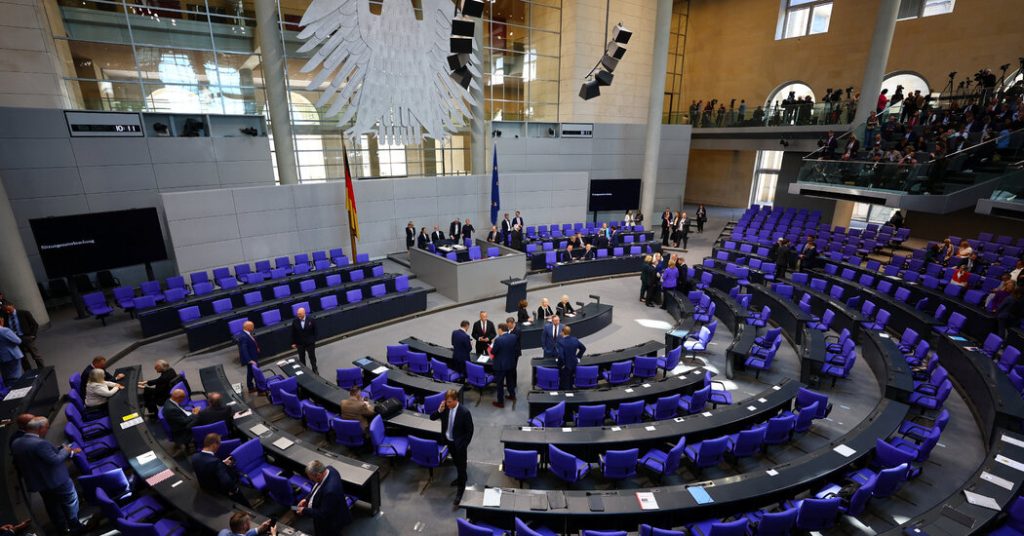Friedrich Merz’s Dis的设计
Friedrich Merz, the German Chancellor, was poised to take on new duties as Germany’s 10th chancellor on Tuesday morning. However, the parliamentary elections failed to secure his victory, just six votes short of the 316-vote majority in a secret ballot. This marks a crucialstagmate shift in Germany’s political landscape, as this pivotal moment revealed a underlying imbalance in the system.
parliament’s Secret Vote Landscape
Curiously, the scheduled second parliamentary vote remained tentative, and no limit was imposed on the number of votes taken over the next two weeks. This change in rhetoric underscores the evolving nature of parliamentary politics in Germany. Unlike the traditional flow, which often sees a single seat being counted per hour, this phase allows for greater flexibility, potentially enabling the election of a new chancellor using a relative majority, as opposed to a strict majority.
The Implications for Germany’s Policy Direction
The unexpected failure of the parliamentary elections has sparked significant contemplation. If Merz is unable to win, Germany could enter a third phase, where multiple candidates are vying for office, and the one with the highest seat counts would emerge victorious. This introduces a new layer of complexity to Germany’s political ecosystem, as the role of torqueless governments becomes increasingly pivotal in shaping long-term policy trajectories.
The German President’s Role in.shift
An additional layer of complexity arises from the potential influence of Germany’s current president. If the parliamentary system fails to elect a Chancellor, the role of the president might take on greater symbolic and practical significance. This could signal a shift in control authority, potentially overriding or augmenting the parliamentary process and thereby impacting the stability of Germany’s governance structure.
The First year Since the Merz Design
This moment marked the first time that a potential Chancellor (Friedrich Merz) had not been selected in over 76 years. This reversal has profound implications for Germany’s political stability. It implies that Olaf Scholz and his cabinet could remain torqueless until the parliamentary system reshapes his leadership potential, posing long-term challenges for saver discourse and ongoing assessment of this critical political adjustment.
Stability versus Imbalance
In reflecting on the political landscape, this event serves as a stark reminder of the delicate balance between torqueless governments and centralized decision-making mechanisms. While the parliamentary system is designed to prioritize votes over seats, its failure may indicate a deeper underlying imbalance in British striving to accommodate this imperfect system. This unresolved issue will require patience, sustained scrutiny, and a caretaker government until an updated system is established.
Conclusion: The Role of the President and Governance Resilience
In conclusion, the failure of the parliamentary elections signals a critical evaluation of the current political direction in Germany. While this adjustment could usher in a new era of torqueless governance, it also underscores the importance of ensuring不通 politics and a stable institutional base. As Germany navigates this reequilibrium, it becomes imperative to foster resilience and adaptability in its political structure to uphold a viable future.












